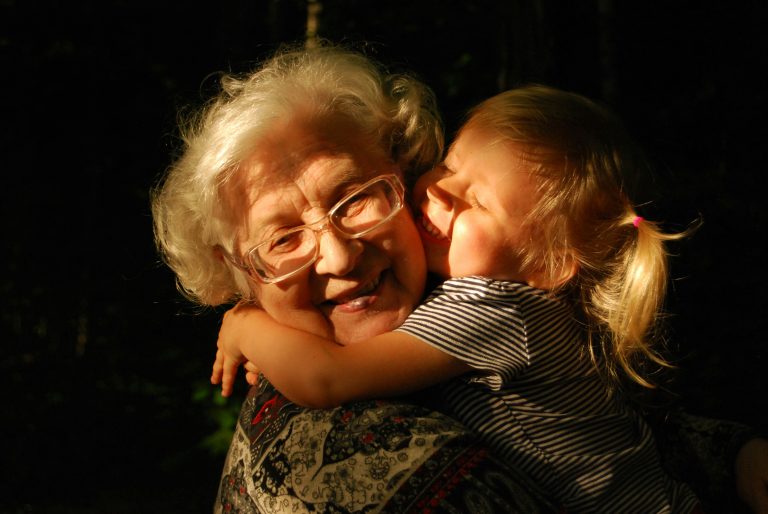Simple Habits To Support Your Immunity
Why winter is the best time to invest in habits that support your immunity and wellbeing. Our habits can dictate the quality…
Why winter is the best time to invest in habits that support your immunity and wellbeing.
Our habits can dictate the quality of our health, and your immunity can be influenced by how you eat, move, and sleep. Nutritious food provides the building blocks your body needs to fight off bugs, regular physical activity boosts circulation and immune response, and quality sleep supports recovery and mental resilience. Together, these simple but essential routines can form the foundation for good health throughout the cooler months.
Why Winter Affects Your Health
In the winter months, even in Brisbane – the air tends to be drier. When the air lacks humidity, or moisture, droplets that we release when we speak, cough, or sneeze, are able to hang around for longer periods of time, increasing the risk of transmission of viruses and colds. What’s more, we tend to hang around indoors more often in the colder weather, reduce our physical activity, and diets tend to include more of those cosy and indulgent comfort foods. Because all these changes can leave an impact on our physical and mental health, winter can become the time we abandon our good habits just when we need them most.
First Line in Winter Defence: The Flu Shot
Every year, thousands of Australians are affected by seasonal influenza — a highly contagious virus that can cause serious illness, hospitalisation, and in some cases, death. The flu vaccine remains your best defence, reducing the risk of infection and lowering the severity of illness if you do catch the flu.
The flu vaccine is updated annually to match the most common circulating strains. This means every year’s vaccine is specially designed to protect you against the season’s most likely threats.
Key Facts About the Flu Vaccine
- Reduces the risk of flu-related hospitalisation by up to 70% in healthy adults.
- Particularly effective in preventing severe outcomes in children, older adults, and those with chronic illnesses.
- Available free under the National Immunisation Program (NIP) for eligible Australians, including:
- People aged 65 and over
- Pregnant women
- Aboriginal and Torres Strait Islander people
- People with chronic medical conditions.
At The Banyans Medical Centre and Specialist Clinics, we strongly encourage all eligible patients to get vaccinated ahead of peak flu season. Vaccination is especially important if you work in healthcare, childcare, education, or have frequent contact with vulnerable individuals.
Flu vaccination is an essential part of your winter health planning, but beyond the flu shot, here are some further way you can support your body and mind through the season:
Eat for Immunity
In winter, it’s natural to crave warm, rich, and comforting meals. But while higher-fat and sugary foods might feel satisfying in the moment, they can leave you feeling sluggish, lower your immune response, and contribute to weight gain or poor mood over time. Instead, fuelling your body with balanced, nutrient-rich meals supports your immune system, stabilises your energy, and helps regulate your mood — all of which are particularly important during the colder months.
“Eating well during winter can help reduce the risk of seasonal infections, boost energy levels and improve mental clarity.”
– Nutrition Australia
Why Nutritious Eating is Especially Important in Winter:
- Immune support: Vitamins A, C, D and zinc all help your body fight off infections — and these are found in vegetables, fruits, whole grains, seeds, and nuts.
- Mood and mental health: A stable blood sugar level and a well-fed gut microbiome (supported by fibre and fermented foods) help regulate mood and reduce symptoms of anxiety or low mood.
- Digestive health: High-fat, processed foods can slow digestion and increase inflammation. Nutritious meals support regularity and reduce bloating.
Remember to stay hydrated
In cooler weather, we often forget to drink enough water. Staying hydrated supports detoxification, digestion, and healthy skin. Try herbal teas, warm water with lemon, or vegetable broths to keep your fluids up without relying on caffeine.
Keep Moving To Boost Immunity, Energy and Mood
During winter, it’s all too easy to become less active. Cold mornings, early sunsets, and the cold Brisbane winds make it tempting to stay indoors and reduce movement. But regular physical activity remains one of the most important things you can do to protect your health in the colder months.
“Physical activity not only strengthens your immune system, it also helps prevent mental health challenges and chronic disease.”
– Australian Government Department of Health and Aged Care
Even low-intensity movement such as walking, stretching, or gardening can:
- Increase circulation and immune function
- Reduce stress hormones like cortisol
- Improve mood and cognitive clarity
- Regulate sleep patterns
- Support bone, muscle, and heart health
And there’s another crucial benefit to getting outside and moving your body in daylight — vitamin D.
Why Vitamin D Is Essential
Vitamin D is often called the “sunshine vitamin” because your skin produces it in response to sunlight. In Australia, vitamin D is primarily gained through exposure to UVB rays — not through diet alone.
In winter, when sun exposure is reduced and we spend more time indoors, some people can experience vitamin D deficiency, which can contribute to fatigue, lowered immunity, poor sleep and even depression. According to the Australian Medical Association (AMA) and Better Health Victoria, low vitamin D levels have been linked to:
- Depressed mood and seasonal affective disorder (SAD)
- Sleep disruption and fatigue
- Impaired immune response
- Increased inflammation and chronic pain
Vitamin D also plays a role in the regulation of serotonin, a neurotransmitter that helps stabilise mood, promote calmness, and regulate the body’s internal clock — or circadian rhythm.
“Exposure to sunlight and regular movement can significantly reduce the risk of winter-related mood changes and sleep disturbances.”
– Sleep Health Foundation Australia
How to Get More Vitamin D in Winter
For most people in Queensland, regular, incidental exposure from the sun will provide enough Vitamin D, even in winter. In Brisbane, the UV Index remains fairly moderate even as the weather cools, ranging from 3-6 across the season. When UV levels are 3 and above, most people usually need just a few minutes outside to benefit from vitamin D.
Depending on your location, lifestyle and personal risk factors for skin cancer, you may benefit from spending 10 minutes in the sunshine, preferably in the mid-morning or late afternoon, when the UV Index is at it’s mildest. Remember: Always balance safe sun exposure with skin cancer prevention.
Overdue A Skin Check? Check Out Our Skin Cancer Services.
Certain lifestyle factors may mean need additional support. Your GP can check your vitamin D levels with a simple blood test, and advise whether supplementation is needed.
Sleep Well: Create Good Sleep Hygiene
Sleep strengthens immunity, improves mood and reduces inflammation. The Australian Sleep Health Foundation recommends:
- 7–9 hours of sleep per night
- Regular bedtime and wake-up times
- Avoiding screens before bed and creating a restful sleep environment.
A healthy sleep routine helps your immune system recover from stress, and protects against infection.
During winter, many people experience disruptions to their normal sleep cycle; shorter daylight hours, cold weather, and changes in routine can alter our circadian rhythms — your body’s internal clock that tells you when to feel sleepy or alert. Poor or irregular sleep in winter can lead to:
- Lowered immune response
- Increased risk of catching colds or flu
- Mood swings or irritability
- Brain fog and difficulty concentrating
- Worsening of chronic conditions like high blood pressure or diabetes.
While you sleep, your body produces and releases cytokines, which are crucial for regulating inflammation and supporting your immune response. Chronic sleep deprivation can reduce the availability of these proteins, making it harder for your body to fight off infections.
The Sleep–Mental Health Connection
Lack of sleep isn’t just physically draining, it can be emotionally exhausting, too. Sleep affects the production of serotonin, dopamine and cortisol — brain chemicals responsible for regulating mood, stress and energy levels. Disrupted sleep can contribute to:
- Depression or anxiety
- Emotional reactivity
- Poor decision-making
- Social withdrawal or isolation
“Addressing sleep problems and prioritising good sleep hygiene can be a vital part of managing and improving mental health, while mental health treatment can help alleviate sleep-related issues.”
– Sleep Health Foundation Australia
Tips To Improve Your Sleep
Improving your sleep starts with small, consistent changes. Here are some winter-friendly tips:
1. Stick to a routine: Wake up and go to bed at the same time every day — even on weekends.
2. Get sunlight early: Exposure to natural morning light helps regulate your circadian rhythm. Aim for 15–30 minutes of outdoor light exposure before 10am.
3. Create a wind-down ritual: Turn off screens at least 30–60 minutes before bed. Try reading, meditating, stretching or a warm bath.
4. Keep your bedroom cool and dark: A room temperature of 17–19°C promotes better quality sleep. Use blackout curtains or an eye mask to block artificial light.
5. Avoid heavy meals and alcohol before bed: These can disrupt your sleep cycle and reduce the quality of your deep sleep stages.
6. Be mindful of caffeine: Limit caffeine after 2pm to help your body wind down naturally in the evening.
How Your GP Can Support You This Winter
Staying well during winter doesn’t have to be a solo effort. Your GP is your partner in preventative care — here to guide, support, and personalise your health plan. At The Banyans Medical Centre and Specialists Clinics, our experienced GPs can help you:
- Protect against illness with your annual flu vaccination and immunisation updates
- Improve your nutrition with advice tailored to your lifestyle, medical needs, or chronic conditions
- Stay active safely, with exercise recommendations suited to your age, goals, and health status
- Address sleep issues, from trouble falling asleep to snoring, fatigue or possible sleep disorders
- Support your mental wellbeing with mental health care plans, referrals, and compassionate care
- Order tests and referrals when needed, including blood tests (e.g. vitamin D), dietitian support, sleep studies or allied health
Due for a winter check-up? Call us on 07 3155 3848 or Book online.






